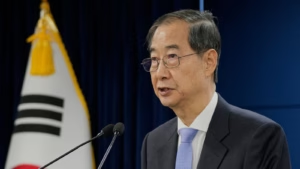President Trump expresses determination to cease the “death march” in Ukraine as soon as possible.
However, for Russian President Vladimir V. Putin, discussions about cease-fires with Mr. Trump serve a broader agenda.
Officials from Russia and the U.S. are scheduled to meet in Saudi Arabia on Monday to further their discussions on technical aspects of a partial cease-fire. This involves halting attacks on energy facilities and ships in the Black Sea. While Ukraine is open to a complete truce, Mr. Putin has emphasized that he seeks a range of concessions before any form of agreement.
The Kremlin appears keen on exploiting the full potential of Mr. Trump’s interest in a Ukraine peace agreement, even as they proceed slowly with negotiations. Improving ties with Washington is seen as providing both economic and geopolitical advantages to Russia, and this opportunity may be pursued even as Russian military actions continue in Ukraine.
Several high-ranking Russian officials at a recent security conference in New Delhi suggested that the Kremlin views the negotiations over Ukraine and U.S.-Russia relations as separate but related issues. Mr. Putin seeks a significant and wide-ranging victory in Ukraine but is accommodating Mr. Trump’s cease-fire proposal in order to take advantage of any easing of tensions with the U.S.
Vyacheslav Nikonov, a deputy chairman of the foreign affairs committee of the Russian Parliament’s lower house, noted that Mr. Trump and Mr. Putin are developing a bilateral relationship not dependent on Ukraine.
“Ukraine is running its course,” Mr. Nikonov stated during an interview at the Raisina Dialogue conference. “The military operation continues,” he added. “But for Putin, relationships with America could be more critical than Ukraine specifically,” reflecting Russia’s strategic priorities.
Establishing better relations with Mr. Trump might unlock economic benefits such as Boeing spare parts and wider geopolitical gains including reducing the NATO presence in Europe. Whether Mr. Trump utilizes this potential to secure improved conditions for Ukraine or loses patience with Mr. Putin remains uncertain.
“Mr. Trump enjoys quick deals. If he encounters significant obstacles, he might become frustrated and abandon this issue,” said Aleksandr A. Dynkin, a Russian international affairs specialist who provides advice to the Russian Foreign Ministry.
Accordingly, Mr. Putin is taking all possible actions to maintain Mr. Trump’s interest.
During Mr. Putin’s meeting with White House envoy Steve Witkoff in Moscow this month, Mr. Putin gifted Mr. Witkoff a “beautiful portrait of President Trump” created by a Russian artist, as Mr. Witkoff later mentioned in an interview with Tucker Carlson.
“It was an extremely gracious gesture,” Mr. Witkoff told the former Fox News host Tucker Carlson.
Regarding Ukraine, Mr. Putin shows no indication of stepping back from his expansive objectives, which include prohibiting Ukraine’s NATO membership, reducing Western influence in Central and Eastern Europe, setting limits on Ukraine’s military capabilities, and exerting some level of control over Ukraine’s internal politics.
Feodor Voitolovsky, the director of the Institute of World Economy and International Relations in Moscow, stated that Russia will pursue a “road map” towards a broader agreement before considering a cease-fire.
Voitolovsky also mentioned that Russia might accept a U.N. peacekeeping force in Ukraine, as long as it excludes NATO member countries.
“For Russia, the long-term perspective is more valuable than a provisional ceasefire,” Voitolovsky stated, serving on advisory boards at the Russian Foreign Ministry and Security Council. “We could establish a model for Russia and the U.S., and Russia and NATO, to coexist without meddling in each other’s spheres,” he added.
To achieve such a deal, Russia is appealing to Mr. Trump’s business-oriented way of thinking. Voitolovsky argued that a broad agreement on Ukraine is necessary for U.S.-Russian cooperation, and as a businessman, Mr. Trump understands that Russian assets are undervalued.
Aleksandr Dynkin, a Russian international affairs specialist, highlighted that the Kremlin might remove the U.S. from its list of “hostile countries,” curtailing restrictions on American businesses in Russia. Moscow is particularly drawn to aviation sector negotiations, with the U.S. potentially allowing the export of aircraft spares and reinstating direct flights to Moscow, while Russia could permit American airlines to fly over Siberia again.
Anastasia Likhacheva, the dean of international affairs at the Higher School of Economics in Moscow, mentioned the improbability of Mr. Trump delivering swift and substantial sanctions relief. Nonetheless, she noted that a warming of relations could lead to less stringent sanctions enforcement and more ease for Russian companies in global operations.
However, Likhacheva pointed out that even without complete sanctions relief, a thaw in the U.S. relationship could give Russian firms an easier global operating environment by signaling that Russia is no longer a troublesome ally to engage with.
“Such a cleanup,” Likhacheva said, “could be beneficial and will broaden our options.”
Source: https://www.nytimes.com/2025/03/24/world/europe/trump-russia-putin-ukraine.html





